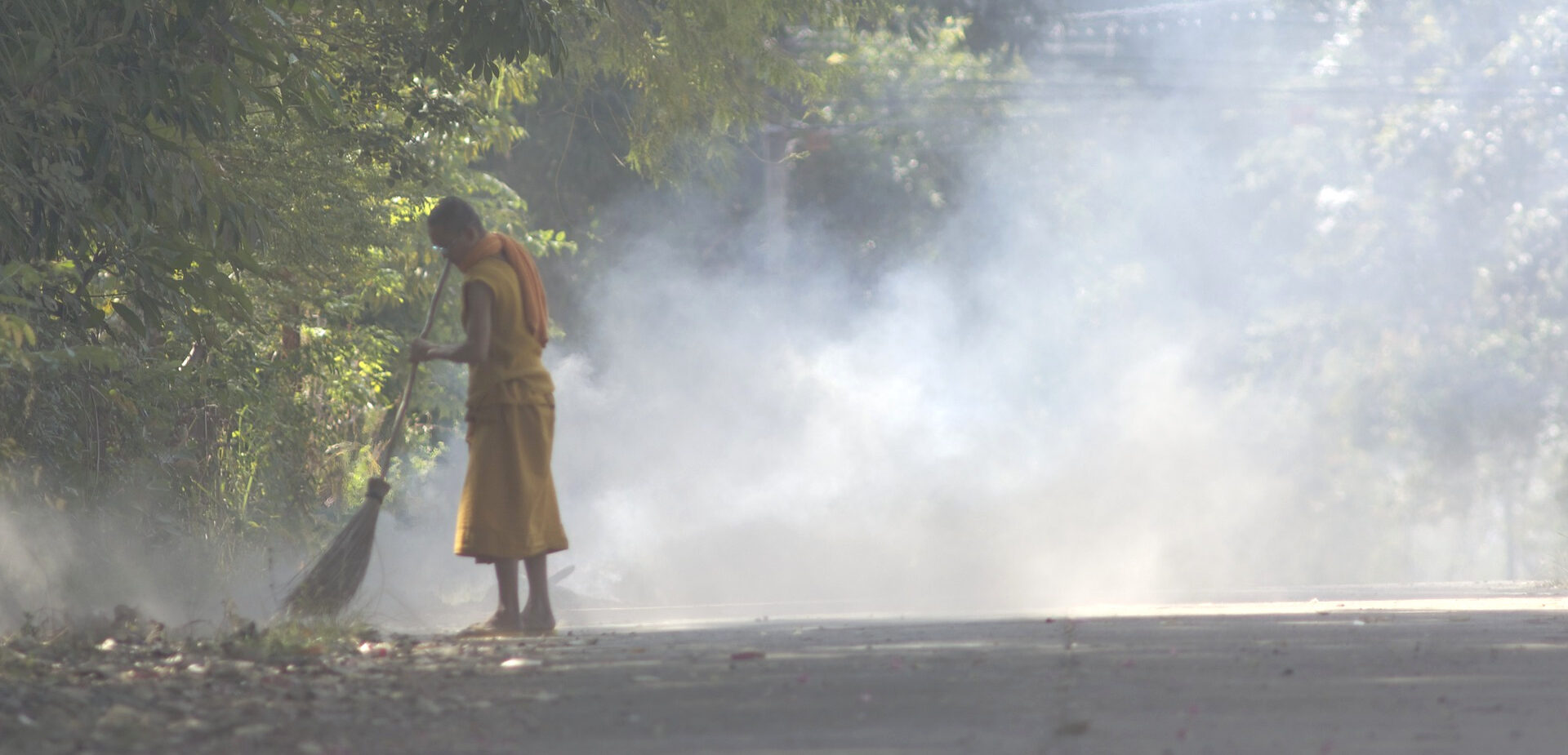It is not enough to be busy. So are the ants.
The question is: what are we busy about.
—Henry David Thoreau
There is a Zen story about two teachers that goes back to seventh-century China. One teacher is sweeping some stone steps inside the temple with a wooden broom. He is approached by the other teacher, who looks at him and remarks, “Too busy.” (This is a way of saying, “Why are you sweeping when you should be meditating or undertaking some type of contemplative practice?”) The first teacher, holding his broom, responds by saying, “You should know that there is one who is not busy.”
Though we often associate busyness with activity and speed, and lack of busyness with stopping or slowing down, this is not always the case. It is possible to be actively engaged and not be busy. Not being busy does not require that you stop, slow down, or step out of the activity of your life. Most of the time, we have the opportunity to learn, to adjust, to find our composure, right in the midst of the activity and intensity of our lives. We can’t slow down or stop, sometimes.
Effort and Effortlessness
In the book Extraordinary Golf, Fred Shoemaker describes a study comparing the golf swings of top professional golfers with the swings of average golfers that provides some useful lessons about doing, effort, and effortlessness.
The study shows three different rows of golfers, detailing their various golf swings. In the top row is a professional golfer. In the second row is an average golfer hitting a golf ball. In the third row is an average golfer swinging when there is no ball. The study found that when an average golfer is not trying to hit a golf ball, his or her swing more closely resembles the swing of a professional golfer. When an average golfer is actually hitting a golf ball, his or her swing changes for the worse.
It appears that when a golfer is not aiming for any result, the golfer can replicate the better, more professional swing. Put a ball on the tee, and the golfer tries too hard or exerts unnecessary effort, which gets in the way of the natural, effective knowledge that is resident within the mind and body.
Lack of striving by itself does not lead to an effective golf swing (nor does it make you more focused, more emotionally present, or a better leader). Being effective requires study, practice, and skill-building, which at the point of performance combines with effortlessness. It’s particularly significant that this study of golf swings highlights the negative impact of extra effort, of trying too hard.
I cite this study not to improve your golf game (though for some it could be a useful unintended consequence), but to offer a quantifiable example of a lesson that can be applied to anything and everything in your life.
Tension, anxiety, extra effort, an overly busy mind, our inner critic, any negative inner voice: these all can interfere with a calm, composed mind and affect our performance.
In this golf study, we see a perfect illustration of the central theme of how less extra effort can result in greater effectiveness. Less striving, less trying, less racing, less pushing can lead to surprisingly better results. At the same time, the work we do becomes less exhausting, less emotionally taxing. In a very real way, when we reduce busyness, the productivity of our business improves – whether it’s our personal business or the profit-oriented kind.
Try this:
One way to explore “finding the one who is not busy” is to ask yourself: What am I doing that is extra?
Then, for a few hours during the day, pay attention to simple everyday physical activities like walking or sitting. Do you hold your shoulders tightly or are they relaxed and comfortable? Is your walking fluid and flowing or is there effort and strain in your gait? Notice where you carry tension in your muscles, and when you notice it, relax.
Similarly, investigate if your attitude and approach to situations, things, other people feels relaxed. Can you reduce or release any extra effort?
Try playing with effort and effortlessness on a regular basis and see if your “swing” doesn’t improve.


